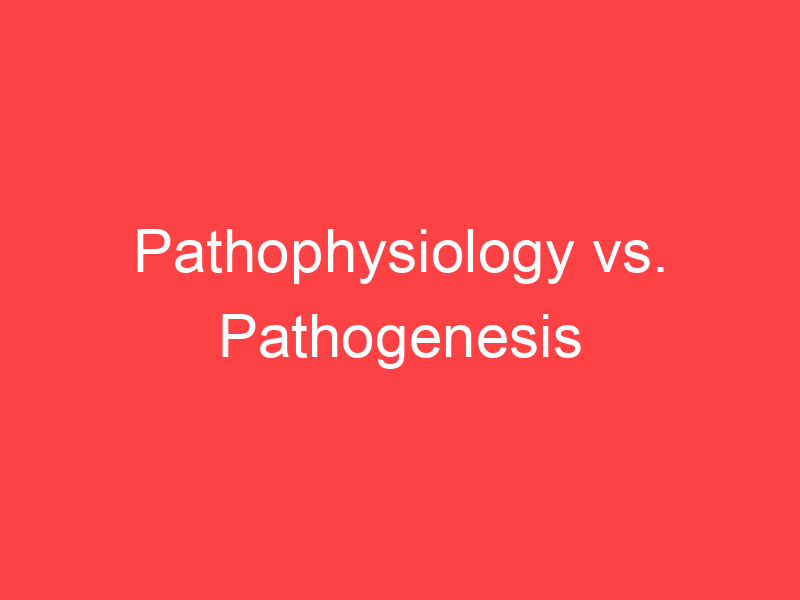-
Pathophysiology
Pathophysiology or physiopathology is a convergence of pathology with physiology. Pathology is the medical discipline that describes conditions typically observed during a disease state, whereas physiology is the biological discipline that describes processes or mechanisms operating within an organism. Pathology describes the abnormal or undesired condition, whereas pathophysiology seeks to explain the functional changes that are occurring within an individual due to a disease or pathologic state.
Pathophysiology can also mean the functional changes associated with or resulting from disease or injury. Another definition is the functional changes that accompany a particular disease.
-
Pathogenesis
The pathogenesis of a disease is the biological mechanism (or mechanisms) progress of disease showing its morphological features or that leads to the diseased state. The term can also describe the origin and development of the disease, and whether it is acute, chronic, or recurrent. The word comes from the Greek πάθος pathos (“suffering”, “disease”) and γένεσις genesis (“creation”).
-
Pathophysiology (noun)
The physiological processes associated with disease or injury.
-
Pathogenesis (noun)
The origin and development of a disease.
-
Pathogenesis (noun)
The mechanism whereby something causes a disease.
-
Pathogenesis (noun)
the manner of development of a disease.

